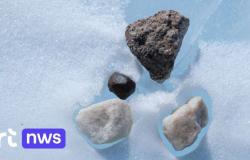Vitamin C is essential for the good health of the body. But there is no need to rush for food supplements. Dr. Faïza Bossy, nutritionist, explains to you in which foods to find it.
Written on 19/01/2025
Allodocteurs – Newen Digital
Vitamin C, a true ally for our health. You see it everywhere, even in facial creams. This fashionable vitamin has the advantage of improving skin texture and radiance, explains Doctor Faïza Bossy, nutritionist.
Indeed, it helps with the synthesis of collagen, which is essential for the skin, but not only that. It also serves blood vessels and connective tissues, which it contributes to “to plump”, according to the specialist.
Also read: Vitamin D, a miracle vitamin?
-Vitamin C, essential for the immune system
Vitamin C has a key role in the body for immune support. “It stimulates the production and function of white blood cells and therefore helps fight infections”says the nutritionist doctor.
Finally, vitamin C has anti-oxidant properties. “It protects cells from free radicals, which helps prevent the degradation of skin tissues and blood vessel walls”continues Doctor Faïza Bossy.
Are food supplements useful?
However, should you supplement during the winter months? “Non”, replies the specialist. Vitamin C is in fact present in many foods, notably fruits such as kiwi, lemon, orange but also in broccoli or pepper.
The recommended daily intake is 75 mg for women and 90 mg for men. If you are not deficient, there is no need to add food supplements to your daily diet. “On the contrary, it can cause digestive problems such as diarrhea or even kidney stones in certain patients”warns Dr. Faïza Bossy. The solution? Opt for a rich, varied and balanced diet, concludes the doctor. This will be more than enough to cover your daily needs!







